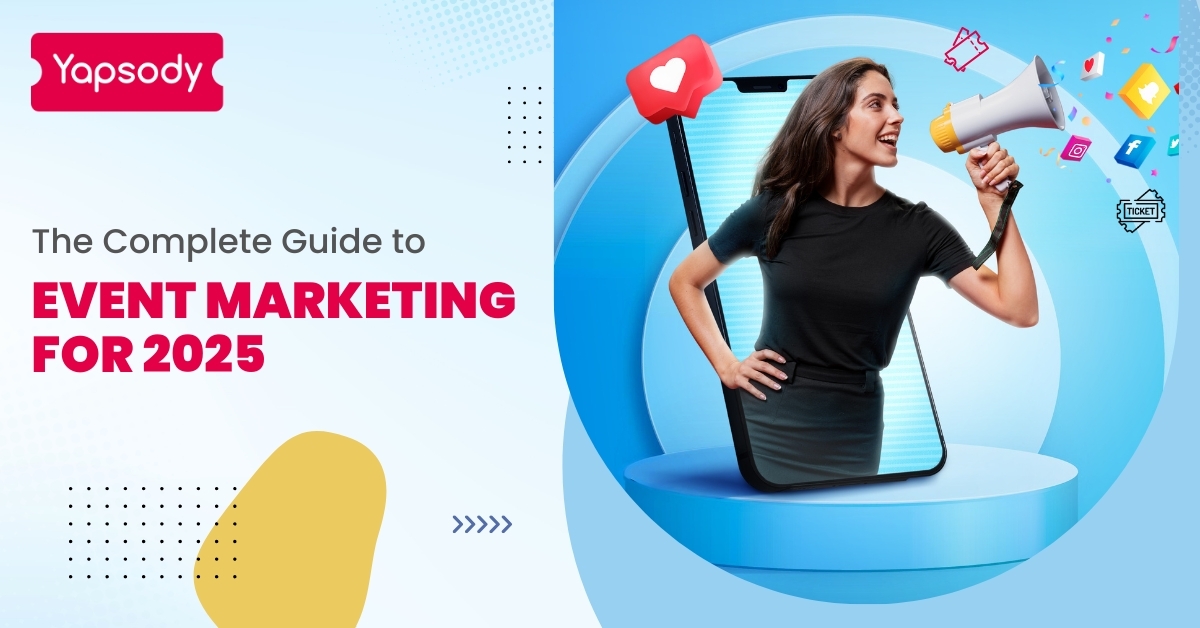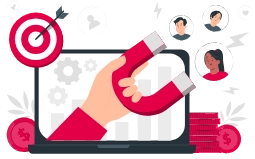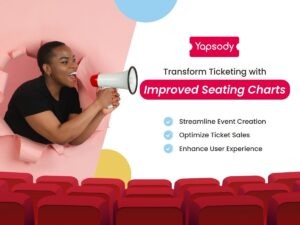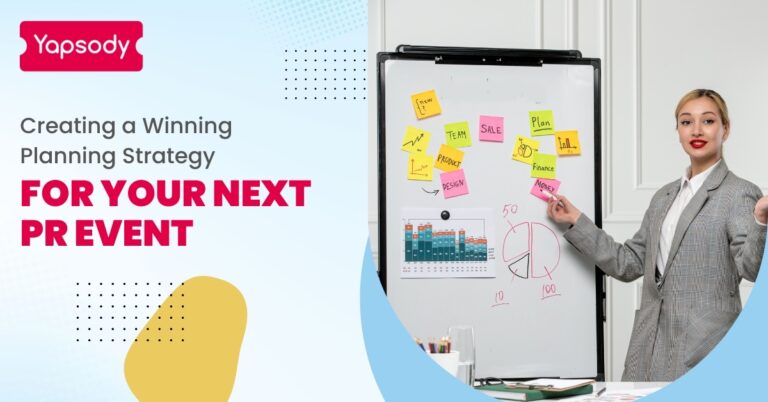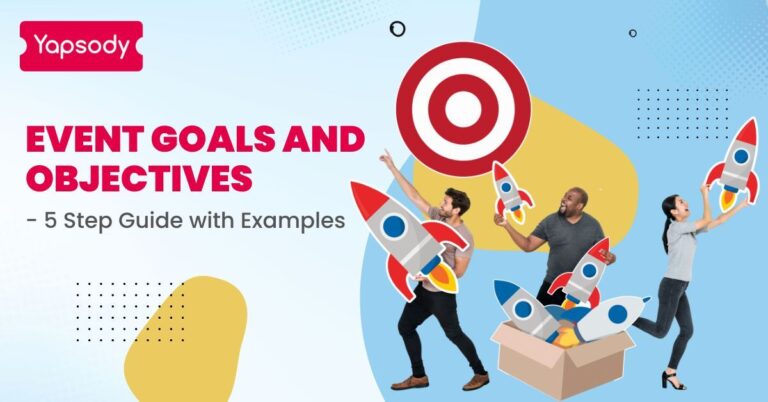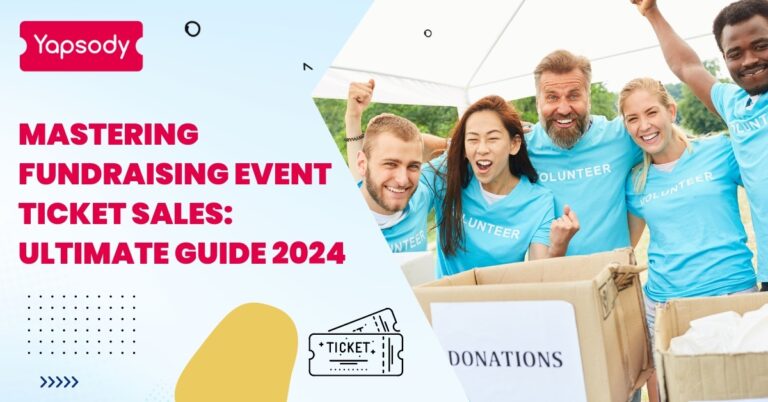Event marketing has evolved rapidly in recent years, and 2025 promises to be a game-changer. With the advent of advanced technologies, evolving audience expectations, and innovative strategies, businesses need to stay ahead of the curve to host successful events. Whether you’re promoting conferences, fundraisers, concerts, or corporate events, a well-crafted marketing plan is crucial to reaching your goals.
In this comprehensive guide, we will walk you through the key trends, strategies, and actionable tips to elevate your event marketing game in 2025.
What is Event Marketing?
Event marketing is the process of planning, promoting, and hosting an event to engage a target audience, raise awareness, and achieve specific business goals. Events can range from live, in-person gatherings to virtual experiences and hybrid formats.
Why is Event Marketing Important in 2025?
- Boosts Brand Awareness: Events help showcase your brand to potential customers.
- Drives Revenue: Ticketed events, fundraisers, or sponsorships can generate significant revenue.
- Fosters Engagement: Events create memorable experiences, strengthening audience connections.
- Lead Generation: Effective events attract quality leads and partnerships.
Key Event Marketing Trends for 2025
Stay ahead of the competition by embracing these emerging trends:
1. Hybrid Events
With the success of virtual events, hybrid events (a mix of in-person and online experiences) are here to stay. They provide flexibility for attendees and increase audience reach.
2. AI-Powered Personalization
Generative AI tools can tailor event content, marketing messages, and follow-ups to individual preferences, improving engagement and attendee satisfaction.
3. Sustainability-Focused Events
Sustainability matters more than ever. Brands are prioritizing eco-friendly venues, digital tickets, and minimizing their carbon footprint.
4. Social Media Dominance
Social media platforms will continue to play a huge role in event promotion. Short-form videos, influencer partnerships, and event hashtags will drive visibility and engagement.
5. Immersive Technology
Technologies like AR, VR, and holographic displays will take event experiences to the next level, creating interactive and immersive environments for attendees.
What are the Steps to Build a Winning Event Marketing Strategy?
Step 1: Set Clear Goals
Before starting your campaign, define measurable objectives, such as:
- Increase ticket sales by 20%.
- Drive 500 new leads for your business.
- Increase social media engagement by 40%.
Step 2: Know Your Audience
Understand who you are targeting:
- Demographics: Age, profession, location, etc.
- Interests: Topics, activities, and event formats they prefer.
- Platforms: Identify the digital spaces where your audience spends time.
Step 3: Design a Compelling Event
Make your event irresistible:
- Choose a relevant theme or topic.
- Focus on value-driven sessions, entertainment, or networking opportunities.
- Plan engaging activities, like live polls, Q&As, and interactive games.
Step 4: Create a Multi-Channel Promotion Plan
Promote your event across different platforms:
- Social Media: Run ads, post updates, and leverage stories or reels.
- Email Marketing: Send personalized invites and reminders.
- Content Marketing: Write blogs, design landing pages, and share event highlights.
- Paid Ads: Use Google Ads and sponsored posts to drive traffic.
- Influencer Partnerships: Collaborate with thought leaders to amplify reach.
Step 5: Implement Event Ticketing Systems
Invest in a reliable ticketing platform like Yapsody to streamline registrations, payments, and attendee management. Ticketing features like customizable tickets, promotions, and analytics will ensure a smooth experience for organizers and attendees.
Step 6: Measure Results and Optimize
Track your performance using:
- Event ROI: Revenue generated vs. costs incurred.
- Attendee Feedback: Surveys and reviews post-event.
- Marketing Metrics: Click-through rates, sign-ups, and social engagement.
Use these insights to improve future campaigns.
- Best Platforms for Event Promotion in 2025
- Facebook: Ideal for creating event pages, running ads, and hosting livestreams.
- Instagram: Leverage stories, reels, and influencer partnerships for visual promotion.
- LinkedIn: Best suited for professional and B2B event marketing.
- TikTok: Engage younger audiences with creative, short-form content.
- Email Campaigns: Send personalized invitations, reminders, and event updates.
- Event Discovery Sites: Platforms like Allevents or Yapsody help you reach a wider audience.
What are the Top Tips to Maximize Event Success?
- Offer Early-Bird Discounts: Encourage early registrations with special pricing.
- Create Buzz with Countdown Campaigns: Build anticipation by counting down to your event date.
- Collaborate with Sponsors: Partner with sponsors to share promotional duties and expand reach.
- Incorporate Interactive Content: Host quizzes, giveaways, or contests leading up to the event.
- Livestream Highlights: Allow virtual audiences to join and experience key moments.
Case Study: Successful Event Marketing Example
Company: Yapsody-powered community theater event
Goal: Increase attendance by 30%
Strategies:
- Early-bird ticketing via Yapsody
- Social media promotion with engaging visuals
Email campaign targeting previous attendees
Result: 35% increase in ticket sales and 20% rise in social media engagement
Conclusion
Event marketing in 2025 will focus on innovation, personalization, and audience engagement. By staying on top of trends like hybrid events, AI-powered marketing, and immersive technology, you can create unforgettable experiences and achieve your event goals. Platforms like Yapsody provide the tools you need to simplify event planning, ticketing, and promotion, ensuring success from start to finish.
Take the first step toward hosting impactful events in 2025. Start planning, promoting, and winning today!
Ready to revolutionize your event marketing strategy? Visit Yapsody to learn more and explore advanced ticketing solutions.
